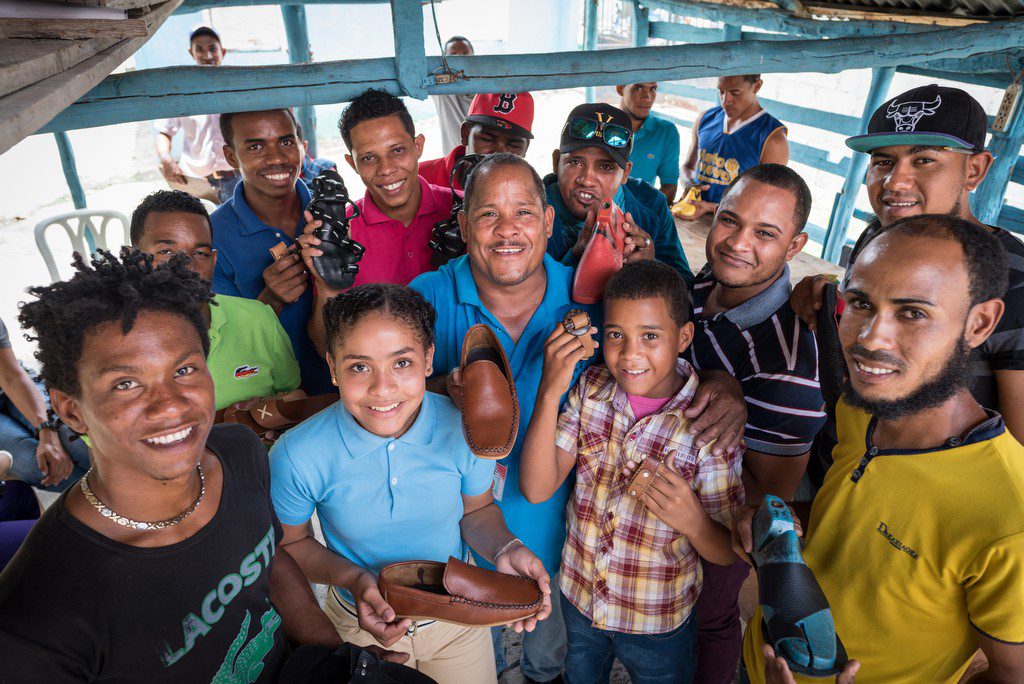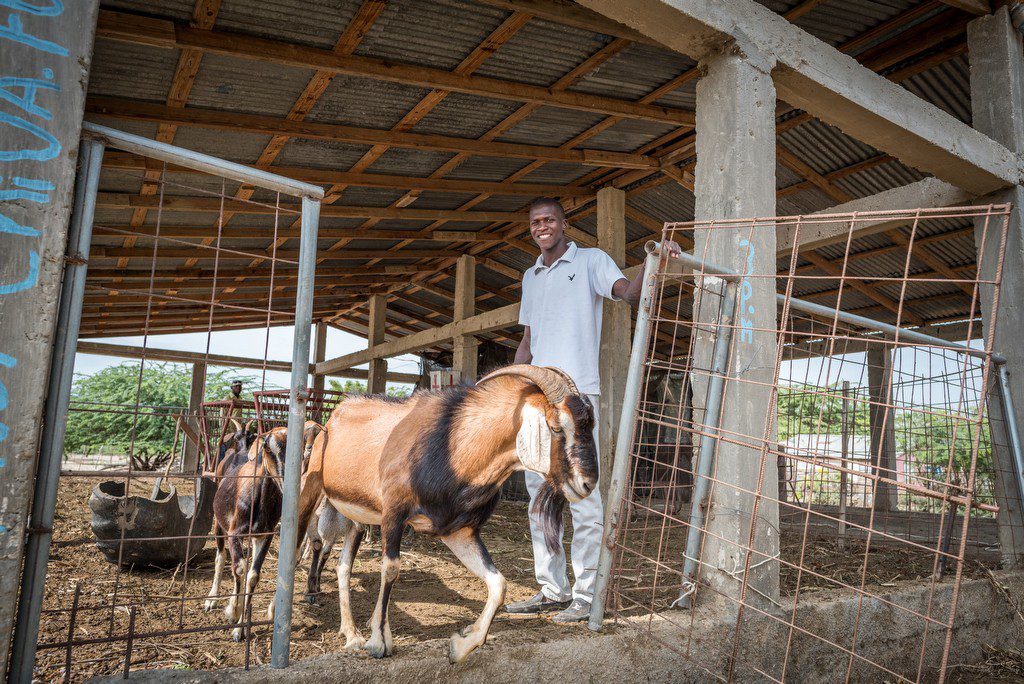
People often falsely assume that the word Christian has a clear, singular, meaning but that’s not necessarily true.
There’s “Christian,” which refers to a particular religion of over 41,000 different denominations or sects who disagree on what Christian means. Then there’s “Christian” which can refer to a nationalistic religion prevalent in America.
And then there’s “Christian” the way I like to use the word: like Jesus. In fact, when the word first caught on in the early church, that’s almost precisely what the definition was.
Of the thousands upon thousands of people who belong to the first two types of Christianity, (approximately 78% of Americans), fighting poverty isn’t high on the radar. Various studies over the years have actually shown that the number of Christians who tithe amount to approximately 5-7%. This means that at least 93% of Christians don’t even give money to the church they attend, let alone give money to fight poverty.
And even among the 5-7% who do tithe, most of that gets sucked into ever growing church budgets, leaving the amount of money that actually ends up going toward helping people poverty negligible at best.
What does this mean? Well, to be perfectly blunt, it means that Christians in America statistically give very, very little to the poor.
But here’s the problem: You can’t be Christian if you’re not actively helping and serving the least among us. Sure, you can belong to one of the 41,000 Christian denominations and fail to do that, but you can’t be Christian—you can’t be like Jesus or a follower of Jesus– if you’re not actively serving those who are impoverished.
Honestly, I think we have a problem that we must face here in American Christianity: 97% of Christians (noun) aren’t Christian (adjective). Jesus taught his disciples to first take the beam out of their own eye before worrying about the speck in their brother’s eye, and I think it’s time we get a crowbar and start yanking this beam out.
For the one who desires to be Christian, we have a non-negotiable model to follow. Scripture tells us that Jesus lived his life in such a way that serves as an example for us to follow, and that we are to walk in his footsteps—even if that means sacrifice or suffering.
What’s the example Jesus left us? Well, Jesus spent his time preaching good news to the poor, healing the sick, feeding the hungry, and helping the lame to walk again. In fact, helping the poor and sick was so absolutely central to Jesus’s ministry, that he commanded his followers to continue this tradition—and even warned them that if they refused to feed the hungry, clothe the naked, or welcome the immigrant, they would find themselves facing an everlasting punishment on judgment day.
Did you catch that? To Jesus, helping the poor isn’t simply a nice thing to do—it’s what often gets classified as a “heaven or hell issue.”
The fact that 93% of Christians in America are not doing something Jesus said was a requirement of being his disciple presents a major discipleship challenge for the next generation of pastors and teachers. It’s one that absolutely cannot be ignored—because you can’t be Christian if you’re not helping the poor.
While on one hand I think that we need to begin to acknowledge that American Christianity has a major, major oversight, this week I’m encouraged by the actions of some who long to follow Jesus. I’ve been traveling in the Dominican Republic with World Vision, and have been overcome with emotion at some of the stories I’ve listened to.
There was the mother who was sick and dying, but when World Vision came to check on her children in their program, they realized she needed help– and she got it. When she was well, they also helped her build a home, get some animals, and start a business– and today the family is not only intact, but she’s actually taken in foster children from the village.
Or, then there was the community who realized that they could improve the condition of everyone if they banded together and started a business. So World Vision provided training and resources, and today I spent the afternoon at their office where they make and sell shoes– providing a livelihood for at least a dozen families who would otherwise languish in poverty.
I saw it at the goat farm too– a group of folks who realized they could prevent families from splitting up and searching for migrant work if they could create a sustainable job for the whole community. Because of World Vision donors, WV was able to help them get the business going, and today they’re able to resist the urge to leave their families in search of migrant work where they could end up exploited or trafficked.
and searching for migrant work if they could create a sustainable job for the whole community. Because of World Vision donors, WV was able to help them get the business going, and today they’re able to resist the urge to leave their families in search of migrant work where they could end up exploited or trafficked.
I have witnessed the beauty of what happens when God’s people do what Jesus said we should do– and I long to see more of it.
I believe one of the ways we can help the 93% of Christians become more Christian, while helping the next generation of Christians avoid the error of our own, is to encourage child sponsorship through World Vision. Sponsorship is just $39 a month, and as I have witnessed firsthand traveling with World Vision in Eastern Europe and the Caribbean, sponsoring just one child has the power to transform an entire community.
The letters you and your children exchange with the child you sponsor will both be a major source of encouragement to your sponsor child, but will also help teach your own about the beauty of being Christian and the beauty of giving.
And that money you give? Well, I’ve seen first hand the net results of sponsoring a child. I’ve been a guest in the homes of those who were once homeless, I’ve embraced healthy people who were once sick and dying, and I’ve bounced children on my knee who have beamed with pride over the fact they had a World Vision sponsor in America.
Yes, it’s true that we as Christians have had a beam in our eye, and that statistically speaking we have overlooked a core tenet of what it means to be Christian. But what’s also true is that it doesn’t have to be that way for another generation.
We don’t have to ignore it.
We can change. And as we change, we’ll change others.
And as we change others? Well, do that long enough and you just might change the world.
Will you join me today in sponsoring a child through World Vision? There’s no better time like the present, and you can select your sponsor child right here.
Follow Benjamin L. Corey on Facebook:
















